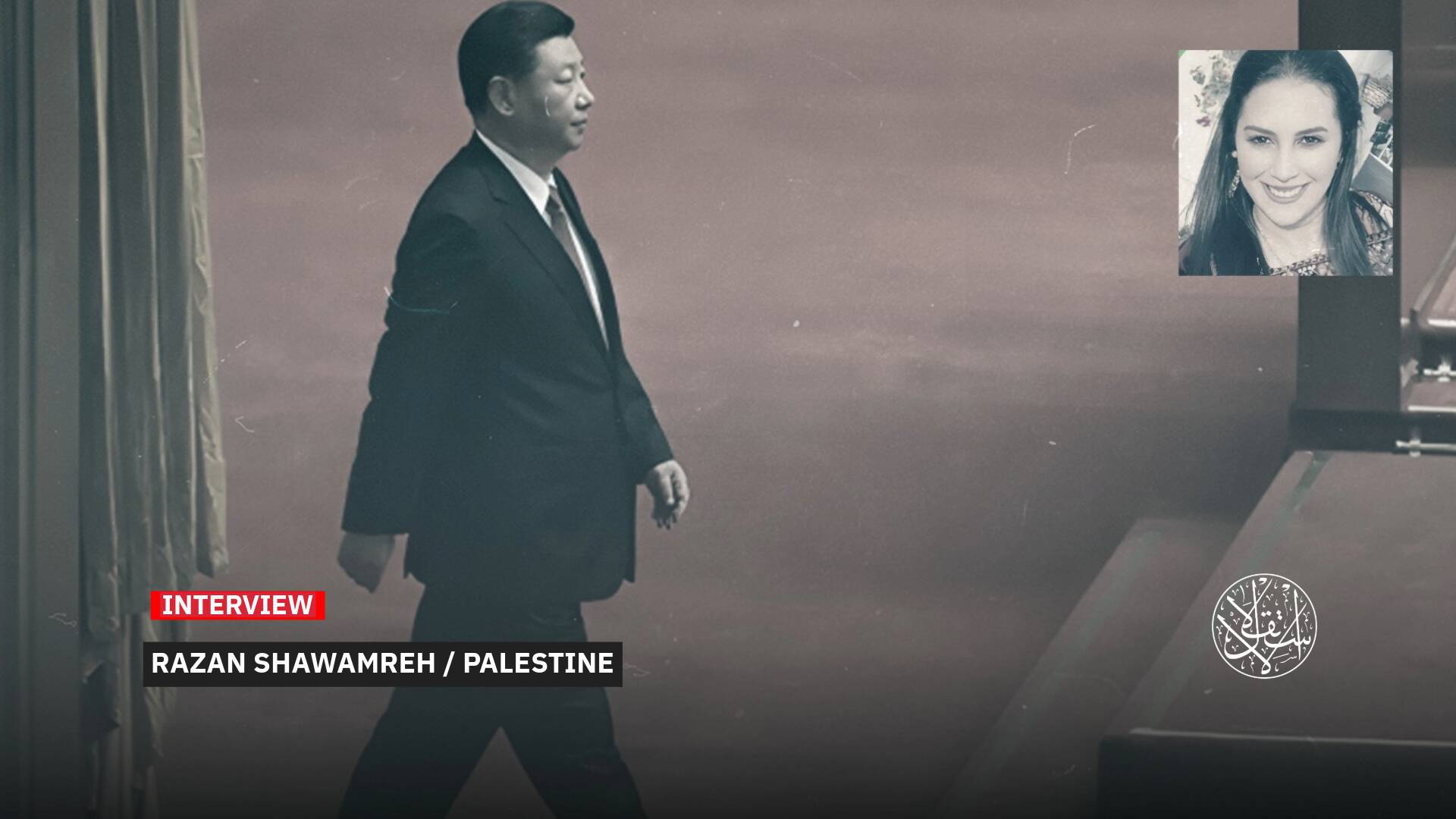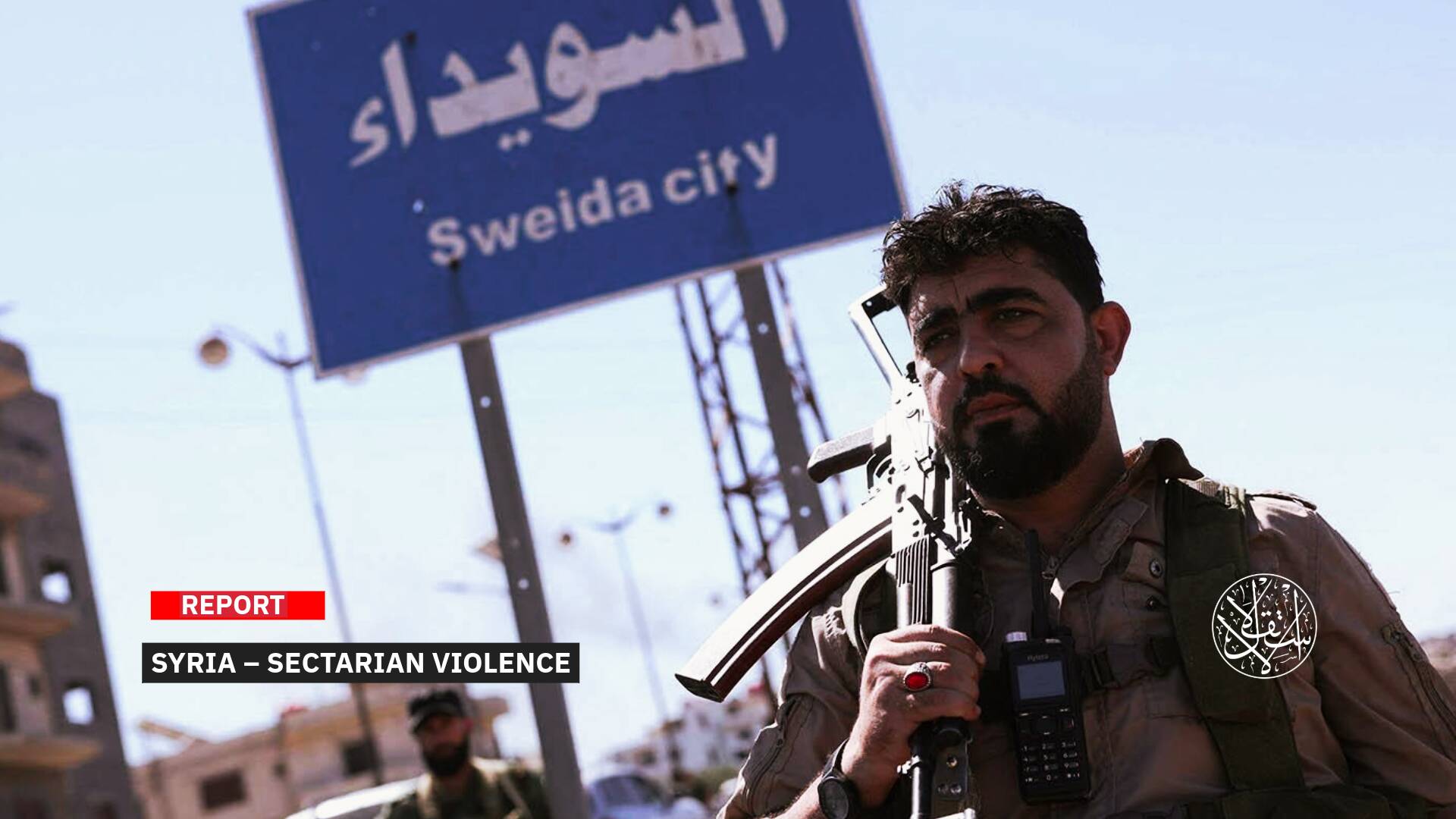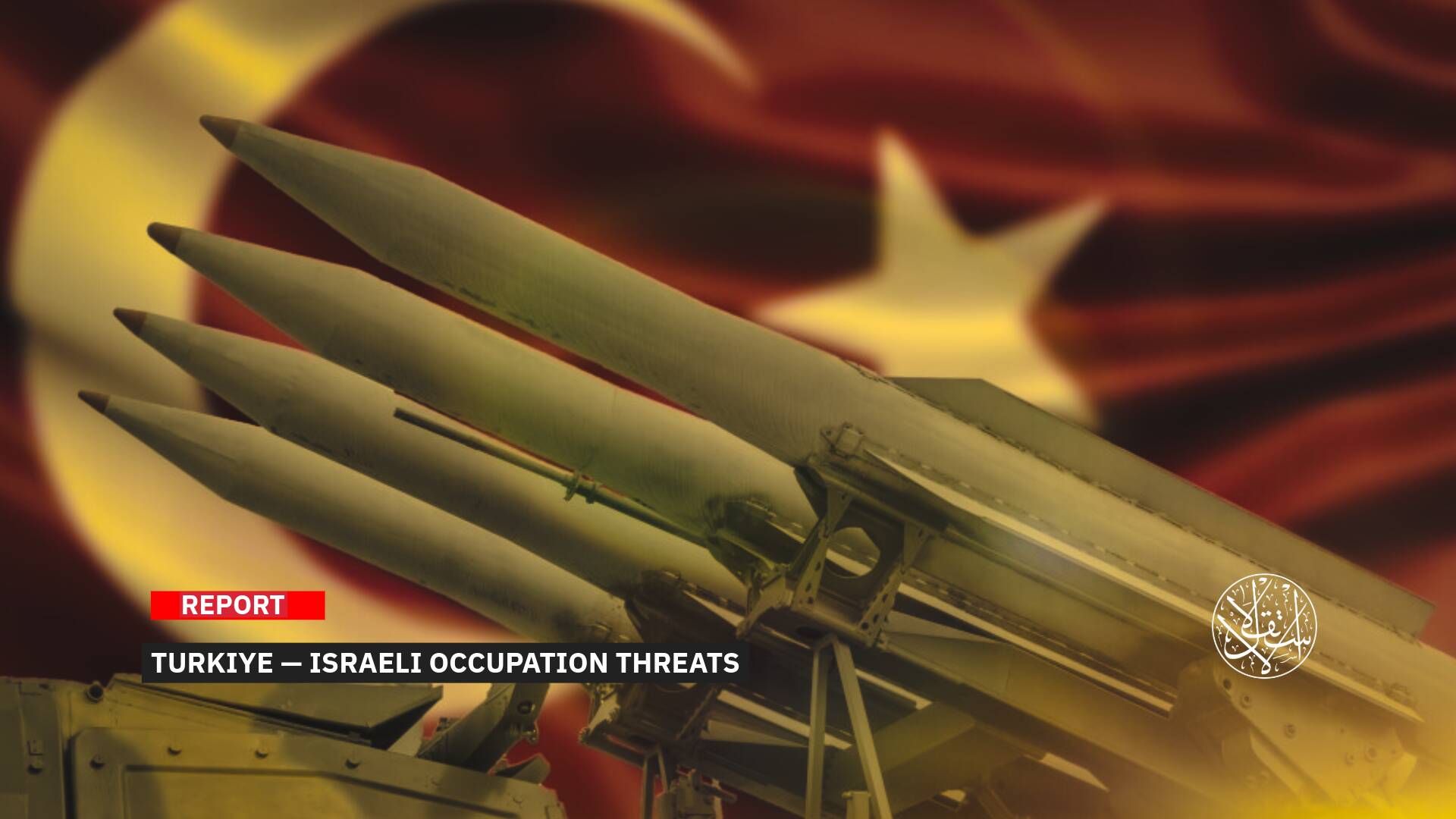This Is How ‘Egypt Gas’ Revived the Relationship Between Syria and Lebanon

After a 10-year rupture, the Egyptian gas file came to break the stalemate between the Syrian regime and Lebanon, which has adopted a policy of disassociation from regional conflicts since the start of the Syrian revolution in 2011.
On September 4, 2021, days before the formation of a new government, a Lebanese ministerial delegation headed by the acting Minister of Defense and Foreign Affairs in the resigned government, Zina Aker, visited the capital, Damascus, in the first official visit at this level between the two neighboring countries in a decade.
The ministerial delegation, which included, along with Aker, former ministers (a new government was formed a week after their visit), Finance Minister Ghazi Wazni, Energy Minister Raymond Ghajar, and Director General of Public Security Abbas Ibrahim, discussed with the Syrian regime's Foreign Minister Faisal Miqdad, "the transportation of Egyptian gas" to Lebanon.
Break the Isolation
The SANA news agency, affiliated with Bashar al-Assad, quoted Nasri Khoury, the Secretary-General of the Lebanese-Syrian Supreme Council (a body established under the brotherhood treaty between the two countries in 1993), as saying that “the visit aims to "discuss the issue of transporting gas from Egypt to Lebanon through Syria to produce electric power."
Khoury pointed out that "there was a previous agreement on the issue of transporting gas from Egypt through Syria and Jordan to Lebanon, but the Egyptian side stopped supplying Lebanon with gas, and today we are working to reactivate it."
Following the session of talks, in which the Ministers of Finance and Oil and the Chairman of the Planning and International Cooperation Authority also participated, Khoury reiterated that the Assad regime agreed to the Lebanese side's request for assistance in passing Egyptian gas and Jordanian electricity through Syrian territory.
He added that the two sides agreed to follow up on the detailed technical procedures through a joint team to discuss issues related to technical matters in both countries.

But the visit, which came with a green light from Washington, was not limited to the technical follow-up of the gas transfer process from Egypt, as the political side was strongly present, which Khoury confirmed by saying: "The visit has political and other implications related to the issue of gas and the reactivation of cooperation between the two countries.”
He considered that "Syria has always been positive in all its directions and responded despite the wounds it sustained due to a number of situations, but it was above its wounds and was keen to cooperate with and help Lebanon."
Khoury’s words about the political implications are a very clear indication that the purpose of the visit goes beyond the issue of gas and its transportation. The Syrian regime is seeking with all its force to break the international and Arab isolation imposed on it, and has tried many times to push the Lebanese parties loyal to it to formally normalize relations.
But fear of international and US sanctions, and internal calculations, prompted successive Lebanese governments to "avoid going into this quagmire."
Can this visit be considered a door to normalizing Syrian-Lebanese relations again in light of the diplomatic developments in the region? Who benefits from that? And what price will the opponents of the Syrian regime pay in Lebanon?
Old Neighbors
Since the exit of the Syrian army from Lebanon in April 2005 following the assassination of former Prime Minister Rafik Hariri in February of the same year, the Lebanese-Syrian relations have entered into a kind of rivalry, due to the accusations leveled by a large number of Lebanese against the Assad regime of Hariri's assassination.

Relations became tense with the establishment of a political bloc of the anti-Syrian forces under the name "March 14", which succeeded in winning the legislative elections and forming a government with an anti-Syrian majority.
In conjunction with a wave of assassination that included ministers, deputies and intellectuals, the finger of accusation was pointed at Syria, which led to a worsening of the relationship between the two neighbors until it reached the point of estrangement.
The Syrian regime maintained close relations with Hezbollah and some political forces that joined in an opposition political alliance, the "March 8 Alliance".
The relationship between the two brotherly countries between 2009 and 2010 witnessed major transformations after mediation led by the late Saudi King Abdullah bin Aziz to turn the page on the differences, and to conduct reconciliation between Assad and the anti-Syrian political forces that own the parliamentary majority, which are closely linked to Saudi Arabia.
The mediation resulted in visits by former Lebanese Prime Minister Saad Hariri, son of Rafik Hariri, the leader of the parliamentary majority and Syria's first opponent, to Damascus, during which he met with President Bashar al-Assad, who was previously accused by Hariri of killing his father in 2005 in his testimony before the International Commission of Inquiry into the case.
However, all these efforts became an effect, with the outbreak of protests in Syria against Al-Assad and his regime in March 2011, as each returned to his trench quickly, especially since Syria’s allies took the initiative shortly before, on January 12, 2011 to a political coup by overthrowing the Hariri government and forming another government and control it.
As a result, the Lebanese street was divided between supporters and opponents of what is happening in the neighboring country. While the government distanced itself from the events, the majority of Sunnis, Druze and some Christians supported the revolution against Assad, and the majority of Shiites opposed it with their Christian allies and considered it a “conspiracy.” Hezbollah sent thousands of his fighters to provide support to the army of the Assad regime.
Official Lebanon adhered to the Arab consensus to boycott Damascus, despite the party's attempt and some political forces to push the government to open up to the regime, but this was limited to individual visits by ministers affiliated with those forces.
The sanctions weapon constituted a deterrent that prevented Beirut from normalizing relations with Damascus until today.
Pressures to Normalize
Political pressure from Syria's allies on their political rivals and opponents of Damascus intensified at the same time to open up to the Syrian side, following the arrival of Michel Aoun, head of the Free Patriotic Movement, the largest Christian party and Hezbollah's closest ally, to the presidency in the fall of 2016.
Syria's allies strongly pressured to resume official relations, by exploiting the file of Syrian refugees fleeing the regime's repression.
In late 2019, Lebanese Foreign Minister Gebran Bassil and Aoun's son-in-law announced his intention to visit Syria in his official capacity to hold meetings with Syrian officials.
He had also previously called on the Arab League to activate Syria's frozen membership due to the regime's accusation of genocide, which led to great Arab anger towards Lebanon that is still present today.
But Bassil was unable to visit Syria. A few days after his speech, huge popular protests erupted in Lebanon against the ruling elites, and Aoun's son-in-law was at the forefront of those targeted.
After that, Lebanon entered the midst of an economic crisis that the World Bank classified as one of the ten worst global crises since the mid-19th century.
The intensity of pressures to open up to Syria has subsided, with the exception of Hezbollah, which has repeatedly stressed, through its Secretary-General, the need to restore relations with Syria to its previous era.
The economic and living crisis have intensified due to the depletion of foreign reserves of the Central Bank, and the resulting decline in electricity supply to only two hours a day, and a severe shortage of basic life commodities, especially oil derivatives.
In addition to the high rate of violence and the increase in crime rates, Hezbollah announced that it had brought petrol ships to Lebanon from Iran via Syrian territory.
In an attempt to solve the fuel crisis in the country, after he had waved so more than once, and demanded that the government open up to Syria and to Iran and its allies.
All this motivated the United States of America to hurry in granting Lebanon permission to transport gas from Egypt through Jordan through Syrian territory, as well as supplying Lebanon with electricity from Jordan through Syria, and thus granting it an exception from Caesar's Law, which warns against dealing with the Syrian regime.
Hezbollah considered this a victory, as it forced Washington to allow the Lebanese government to restore official relations with the Syrian side.
Opinions and Positions
Despite the opposition of the political forces opposed to Hezbollah, as well as to the Assad regime, there is an intention for the restoration of relations with the latter, but they took refuge in silence after the American decision grant permission to Lebanon to transfer gas and electricity through Syria, finance the price of Egyptian gas, rehabilitate, and repair electricity transmission lines and strengthen them, and the required maintenance of gas pipelines by the World Bank.
Hariri was the first to preach to the Lebanese with Washington’s approval in an interview with the local “Al-Jadeed” channel, after he apologized for assigning the government in August 2021, which is a tacit approval from him of a partial normalization of relations with Syria imposed by the repercussions of the economic crisis.
While the writer Sana Al-Jak, who is a member of the Our Lady of the Mountain Meeting, which includes a number of prominent intellectual elites in Lebanon and strongly opposes Hezbollah and Iranian influence as well as the Syrian regime, considers that "the visit of the ministerial delegation aims to float the Syrian regime and bring it back to light."
She told Al-Estiklal: "The issue is not related to Lebanon. Rather, Lebanon is used to extract Arab and international recognition to say that the time has come to end the boycott and sanctions."
Al-Jack points out that Assad's "loving statements" about helping Lebanon are directed at America and not at the exhausted and dilapidated neighboring country, and that everything that happens benefits the Iranian axis, and the only truth is that regional and international deals are taking place at our expense.
The writer Khaled Al-Bawab believes that the visit of the official ministerial delegation to Syria will not be the first step on the path to the solution that the country is waiting for.
In an interview with Al-Estiklal, he said: "The visit is not so much normalization as it is a further involvement of the country in the conflict of the axes, based on the illusion of changing the American vision or Washington's policy in the region."
He added, "Visitors and bettors rely on strategic variables after the visit, with an American cover for it. The issue is much further and more complex, and it is not known how Lebanon will emerge from the orbit of this conflict."
There is talk of preparations by the loyal Lebanese political forces to organize successive visits by delegations. It is also circulated that Michel Aoun will personally visit Damascus and meet with Assad on the sidelines of the issue of the transfer of Egyptian gas.
After Najib Mikati formed his new government on September 10, 2021, and in his first comment on Lebanon's relationship with the Arabs, including Syria, he said: "I will take all the chances and knock on the doors of the Arab world."
He added: "We need the Arab world and we need reconnection of what was cut off, although I am sure that nothing will be interrupted between the Arab world and Lebanon," indicating that he will work to revive the relationship between Lebanon and the Gulf states, and also complete what the resigned government started concerning the negotiation with the Syrian regime in the energy file.
Sources
- A Lebanese ministerial delegation arrives in Damascus to discuss bilateral cooperation and procuring Egyptian gas [Arabic]
- The Hariri Tribunal (Episode 1): The Hariri Tribunal, the next political earthquake [Arabic]
- 'Normalization of Relations with the Syrian Regime'; A new title for division in Lebanon [Arabic]
- The opposition seizes the dome of Washington's court, invading to activate normalization with Assad; Is the Syrian ambassador being questioned about the reasons for the absence of the 'Lebanese flag'?! [Arabic]









